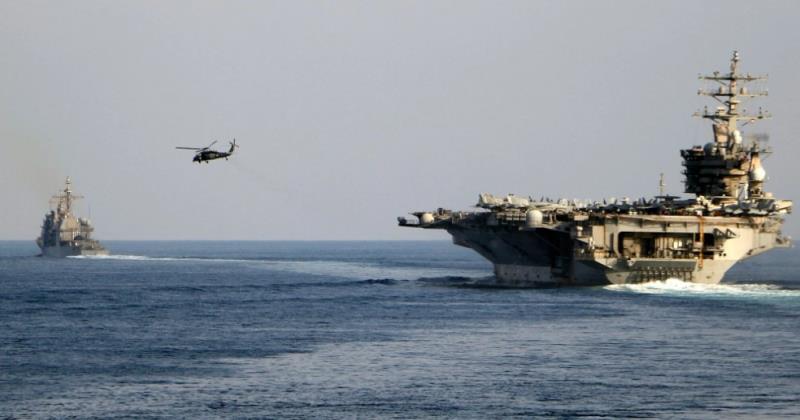Jerusalem: Israeli Prime Minister Benjamin Netanyahu has extended his deepest gratitude to U.S. President Donald Trump following America’s direct military intervention in Iran. Trump’s decision to carry out targeted airstrikes on Iran’s key nuclear facilities including sites at Fordow, Natanz, and Isfahan has been praised by Netanyahu as a “historic moment” that underscores the strength of U.S.-Israeli cooperation and a shared commitment to regional stability through deterrence.
In a televised statement, Netanyahu expressed admiration for what he described as the “spectacular precision and success” of the joint U.S. and Israeli operation. He noted that the airstrikes demonstrated the kind of resolve and leadership that, in his words, “only the United States of America can display.” He credited Trump’s boldness and the unmatched capability of the U.S. military for executing what he termed “a moment that will change the course of history.”
Netanyahu framed the attack as an embodiment of the philosophy both he and Trump share: “peace through strength.” He emphasized that such decisive action is essential to securing long-term stability in the Middle East, particularly in the face of what both leaders view as an existential threat posed by Iran’s nuclear ambitions.
He also highlighted the remarkable level of coordination between the Israeli Defense Forces (IDF) and U.S. military units. “We acted in perfect synchrony,” he said, describing the joint strikes as a product of meticulous planning and shared intelligence. Netanyahu praised the operational execution of the missions, which utilized B-2 stealth bombers and precision-guided Tomahawk missiles to strike fortified underground facilities.
While Netanyahu and Trump have celebrated the operation, global reaction has been mixed. Several European leaders have voiced concern that the escalation could ignite a broader conflict across the region. They have urged both Washington and Tehran to return to diplomatic channels before the situation spirals out of control.
Iran, for its part, has condemned the strikes as acts of aggression and violations of international law. Iranian leaders have vowed retaliation, threatening to target U.S. naval assets and even close the Strait of Hormuz a critical chokepoint for global oil supply. The Iranian Atomic Energy Organization also claimed the attack was carried out with intelligence assistance from the International Atomic Energy Agency (IAEA), a claim the agency has not addressed.
For Netanyahu, the strikes represent more than a military victory they are a demonstration of unwavering U.S.-Israeli unity in the face of mounting threats. He reiterated that Israel will not allow Iran to acquire nuclear weapons and that the coordinated offensive sends a clear message to Tehran and its allies.
Observers warn, however, that the decision to escalate may carry long-term consequences. The region remains volatile, with heightened military alert levels across the Gulf. Oil prices have surged, and global markets are showing signs of tension as the conflict continues to unfold.
Netanyahu’s warm praise for President Trump reflects not just personal alignment but a broader strategic vision shared by both leaders: that only through assertive, unambiguous military action can Iran’s nuclear ambitions be halted. Whether this strategy leads to genuine deterrence or drags the region into deeper conflict remains uncertain. For now, what is clear is that a new chapter has begun in the U.S. Iran Israel triangle one fraught with risk, but driven by a firm belief in power as the foundation of peace.
Iran Prepares Counteroffensive: Orders Issued to Target U.S. Warships, Block Strait of Hormuz
 Tehran:
Tehran: In a sharp escalation following U.S. airstrikes on its nuclear infrastructure, Iran has reportedly initiated steps for a forceful counterattack. Sources suggest Iranian military units have been instructed to target American naval forces and enforce the closure of the strategic Strait of Hormuz one of the world’s most vital oil routes.
According to CNN, a senior advisor to Iran’s Supreme Leader Ayatollah Ali Khamenei has called for immediate military retaliation. The leaked message, reportedly attributed to the advisor, declared that after the U.S. assault on Iran’s Fordow nuclear site, “it is now our turn.” The communication reportedly urges a direct missile strike on U.S. Navy vessels stationed in Bahrain, emphasizing swift action without delay, and calls for the Strait of Hormuz to be sealed off to American, British, German, and French ships.
So far, there has been no official statement from Ayatollah Khamenei or the Iranian administration regarding these alleged directives. However, the Atomic Energy Organization of Iran issued a strong condemnation of the U.S. strike, labeling it a “brutal violation of international law” and a breach of the Nuclear Non-Proliferation Treaty (NPT). The agency also accused the International Atomic Energy Agency (IAEA) of complicity, implying that intelligence shared with the U.S. facilitated the precision strikes.
The U.S. attack, reportedly involving B-2 stealth bombers, was conducted without public forewarning and came at a sensitive time just as President Trump had set a two-week ultimatum for diplomatic progress, and European mediators were in active talks with Tehran.
Iran’s threatened military response and its potential closure of the Strait of Hormuz could significantly disrupt global oil shipments and ignite a broader regional conflict, placing the Gulf and international maritime routes on high alert.